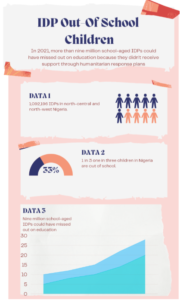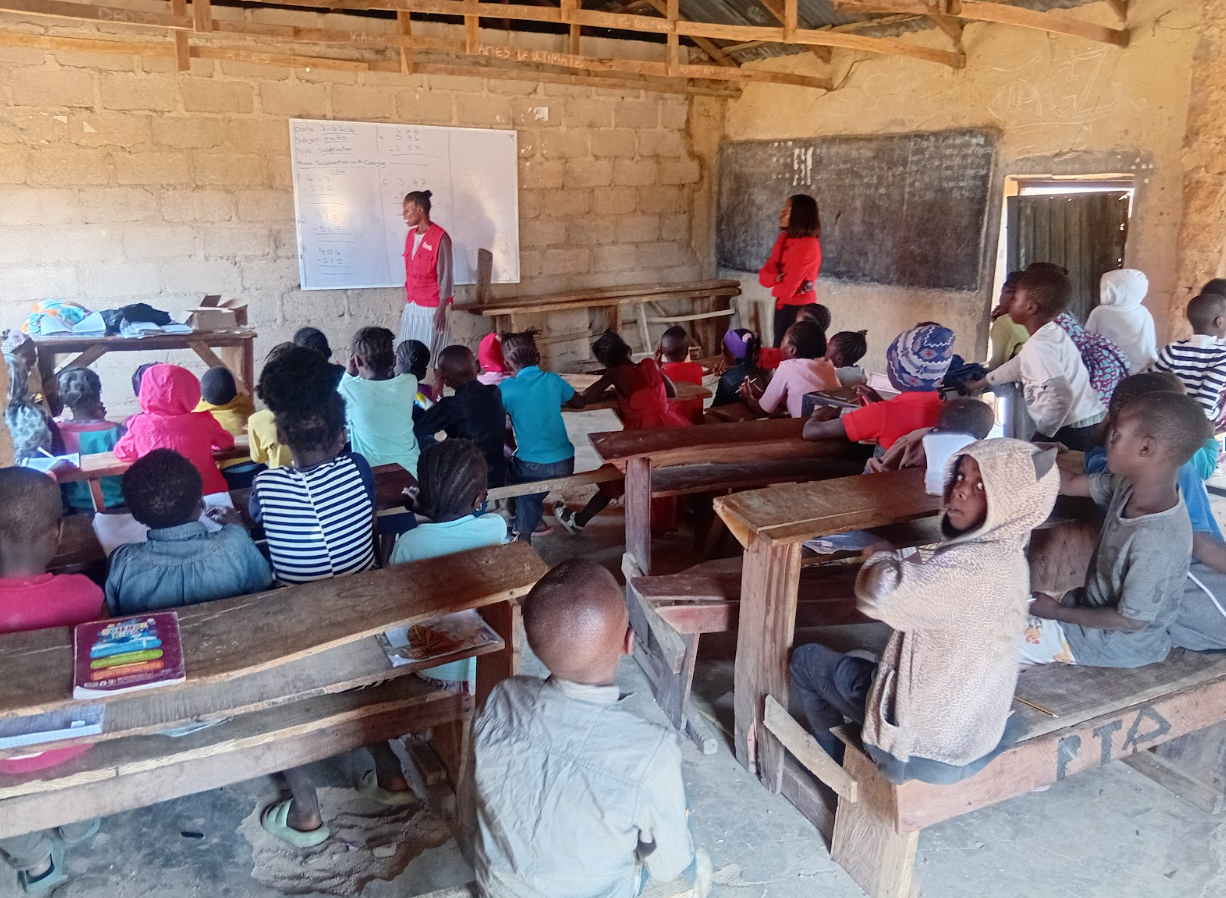Barakin Ladi, Plateau – On June 23, 2018, the small village of Tusan in Barkin Ladi Local Government Area was thrust into chaos after a brutal attack left 68 people dead, 50 homes burned, and 38 individuals displaced. Edward Jacob Makit’s life was forever altered that day.
“Around 7 PM, we noticed smoke rising from nearby villages. I joined other youths to guard the entrances to our village, but our efforts couldn’t save it. Our village was burnt down, and I barely escaped,” Makit recalls.
Makit’s parents were among those killed. His mother, who had hidden in a goat pen, was discovered and shot when the attackers came to steal livestock. His father was burnt alive in their home.
“We hid in the bush for three nights until security forces rescued us and brought us to the IDP camp at Geosciences. I lost hope for life. I was just 18 years old and hadn’t even written my Senior Secondary Certificate Examination,” says Makit, now 24, his voice trembling with emotion.
Barkin Ladi has long been at the epicentre of unrest in Plateau State, with violent clashes dating back to September 2001. In less than a week during that year, over 1,000 lives were lost, and approximately 220,000 people were displaced.
One month after arriving at the camp, Makit’s life took an unexpected turn.
Makit was taking a walk in the camp one afternoon when he saw some people teaching English and mathematics for children in the camp. I thought to myself, Since there’s hope of returning to school, why not join the class? That’s how I met Miss Prayer,” he says.
With the help of the classes, Makit was able to sit for his WAEC exams in 2019.
Another beneficiary, Martina Daniel, shares a similar story. Rescued from Kachin village with her five children after her husband was killed and their home destroyed, she struggled to find hope.
“I lost everything that year. Farming was my source of livelihood, but that was gone. I worried constantly about how I would provide for my children,” says the 43-year-old.
Her turning point came when Miss Prayer found her crying in a secluded spot in the camp. “She took my burden as her own and immediately enrolled my daughter in school. Today, my daughter is benefiting from Miss Prayer’s university scholarship,” Martina shares.

Prayer Nwagboso, a Mass Communication graduate, found her calling during her final-year school project.
“I was supposed to distribute books to underprivileged children, but the 2018 Barkin Ladi crisis occurred. I decided to take the books to the IDP camp instead, and that marked the beginning of a new phase for me,” she recalls.
Starting with just five children, she mobilised volunteers from the University of Jos to teach. “But gradually, their interest grew. I noticed a strong eagerness to learn among them,” she says.
With the support of her schoolmates and organisations like the Society of Petroleum Engineers, Prayer was able to enrol children in formal schools and cover WAEC fees for final-year students like Makit.
However, in 2020, the Plateau State government closed the Geosciences IDP camp, promising to resettle displaced persons in their homes. Despite this setback, Prayer continued her efforts.
During her National Youth Service Corps (NYSC) year, Prayer launched a bimonthly school program in Gyel community, Plateau State.
“I saw children skipping school to work on farms and mining ponds and teenage girls being forced into marriage. This inspired me to create the program to address these issues,” she says.
Through her Naza Agape Foundation (NAF), Prayer enrols children in formal schools, ensuring they can sit for certificate examinations. Over 8,000 children have benefitted from the initiative, and more than five beneficiaries, like Choji Davou, have secured university scholarships.
Davou, who lost his father at age six, is now in his third year studying Mechatronics Engineering. “Since I benefitted from this program, I felt it was only right to teach here,” he says.
Similarly, Makit, who is awaiting university admission after completing his Joint Matriculation Examination, volunteers in the school program. “I feel the need to give back. I teach mathematics to these children,” he says.
Despite its impact, NAF faces significant funding challenges. The foundation supports children in conflict zones across Nigeria, Pakistan, and Ghana but relies heavily on donations.
Individuals like Prayer Nwagboso are bridging the educational gap in Nigeria, where an estimated 20 million children are out of school—the highest number globally. Her efforts offer a glimmer of hope in a country where 66% of out-of-school children are from the northeast and northwest, and 86% are from rural areas.
Today, Prayer’s work not only transforms lives but also inspires others to step up and make a difference.
In June 2018, Tusan village in Plateau State experienced a devastating attack that left 68 dead and many displaced. Edward Jacob Makit, then 18, lost both parents in the violence and fled to an IDP camp. Despite the tragedy and a disrupted education, Makit's life changed upon meeting Miss Prayer, a dedicated educator helping children in the camp. With her help, Makit completed his WAEC exams and is now giving back by teaching children.
Miss Prayer Nwagboso, who began her journey by distributing books during her school project, now leads the Naza Agape Foundation. Her initiative has enrolled over 8,000 children in formal schools across conflict zones in Nigeria, Pakistan, and Ghana, focusing on education as a pathway away from child labor and early marriage. Though facing funding challenges, her foundation has fostered a sense of hope and opportunity for many, including university scholars like Choji Davou. This grassroots effort addresses the significant educational shortfalls in Nigeria, a country with the highest number of out-of-school children globally.






